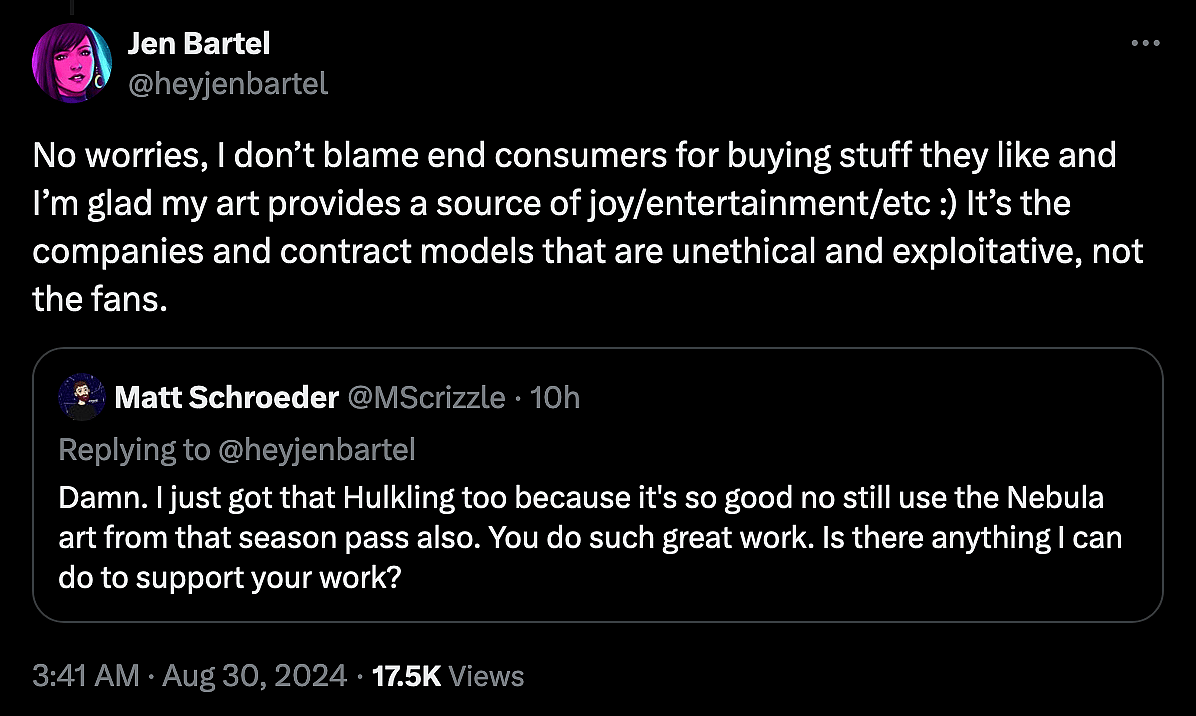‘Sensational She-Hulk’ Artist Jen Bartel Blasts ‘Marvel Snap’ For Lack Of Artist Royalties: “Imagine If The Artists Who Actually Made The Art They Make Millions Of Dollars Off Of Even Got To See A Fraction Of A Percentage Of That”
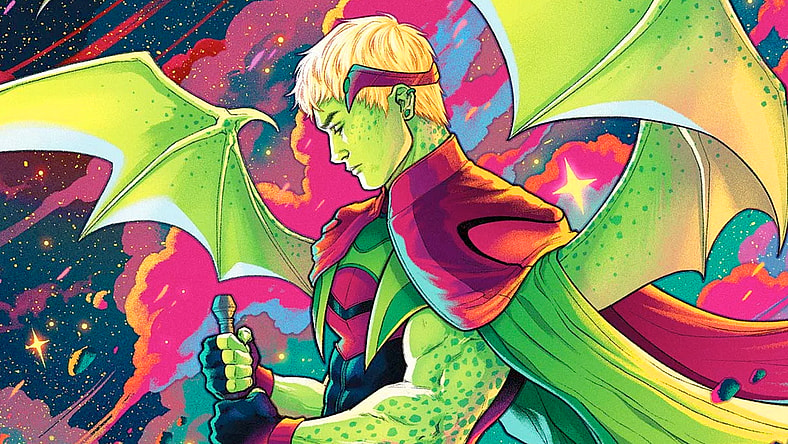
In the latest case of a creator rightfully taking aim at one of the most exploitative elements of the comic book industry, industry artist Jen Bartel has called out Marvel Comics for their adamant refusal to pay any royalties to the artists whose pieces are used for Marvel Snap.
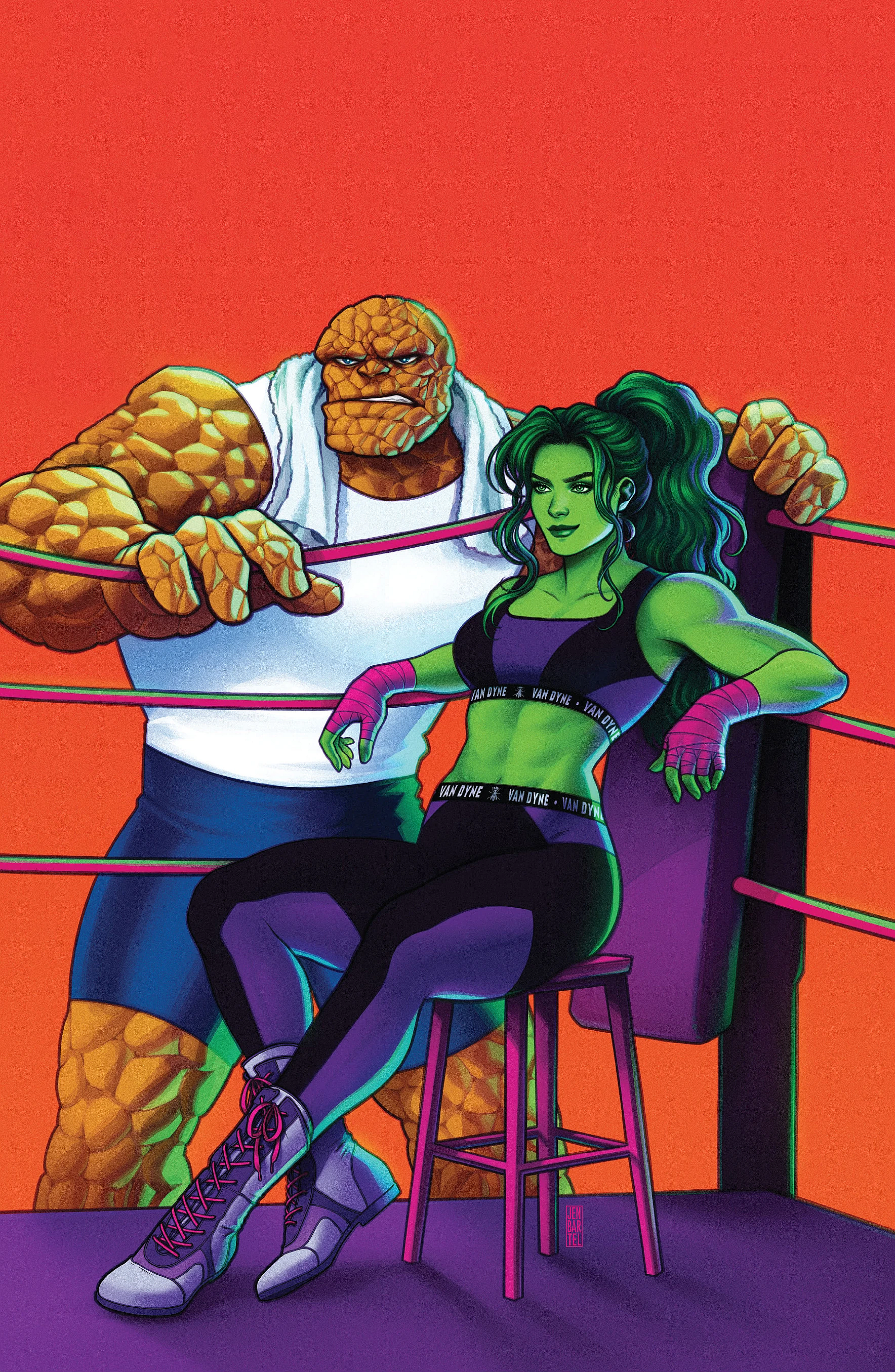
A mobile-exclusive trading card game, Marvel Snap allows players to collect various cards based on their favorite Marvel Comics characters and subsequently send them into battle against another player and their costumed-fighters of choice.
As part of the game’s appeal, in addition to their standard appearance, cards also receive ‘variant’ releases, wherein their card art is replaced with another piece featuring the character, with these alternative artworks often being taken directly from a Marvel Comics cover.
For example, one of Spider-Man’s variants features the wall-crawler as depicted on Yusuke Murata’s variant cover to Amazing Spider-Man: Renew Your Vows Vol. 1 #4, while another uses the piece illustrated by Peach Momoko for her Amazing Spider-Man Vol. 6 #1 variant cover.
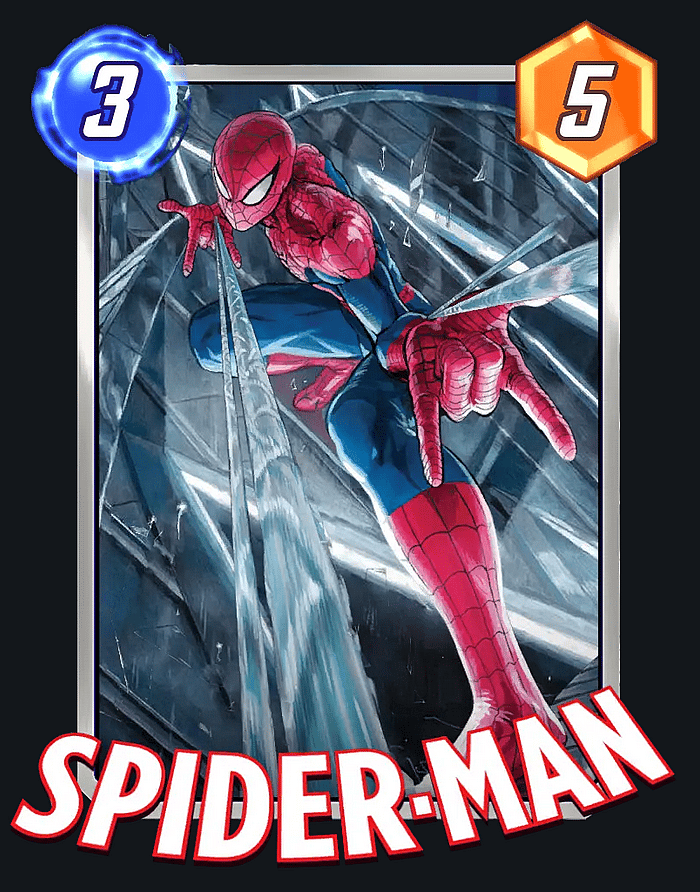
Unfortunately, it appears that when these Marvel Comics-original pieces are translated into Marvel Snap cards, the artists receive absolutely no royalties for their usage.
Bartel’s confirmation and subsequent lambasting of this fact kicked off on August 29th when a fan tweeted out his excitement at the reveal that her variant cover for Lords of Empyre: Hulkling Vol. 1 #1 had been used as the featured art for a new variant card based on the eponymous Young Avenger-turned-Kree/Skrull emperor.
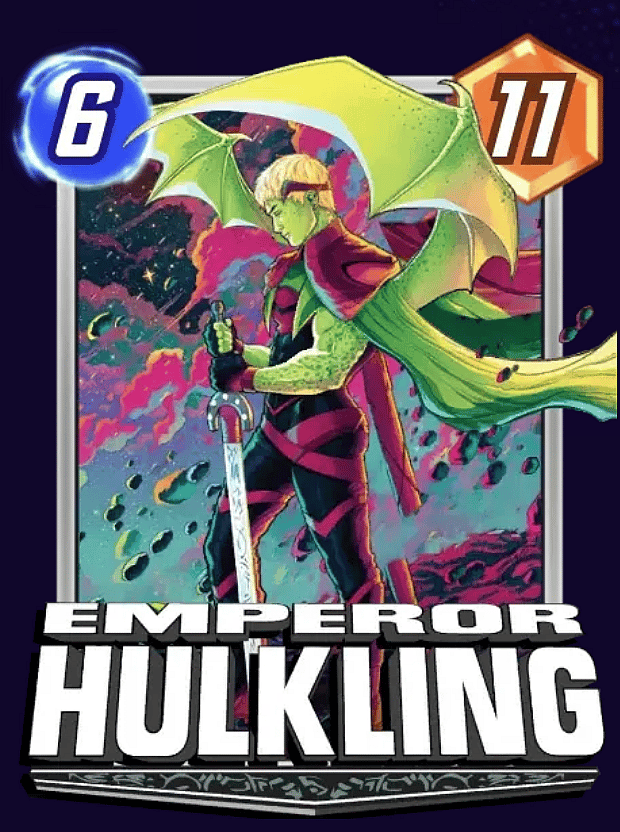
In response to this news, the She-Hulk Vol. 4 and Sensational She-Hulk Vol. 2 artist retweeted the fan and lamented, “Wish I actually got paid for these lol”.
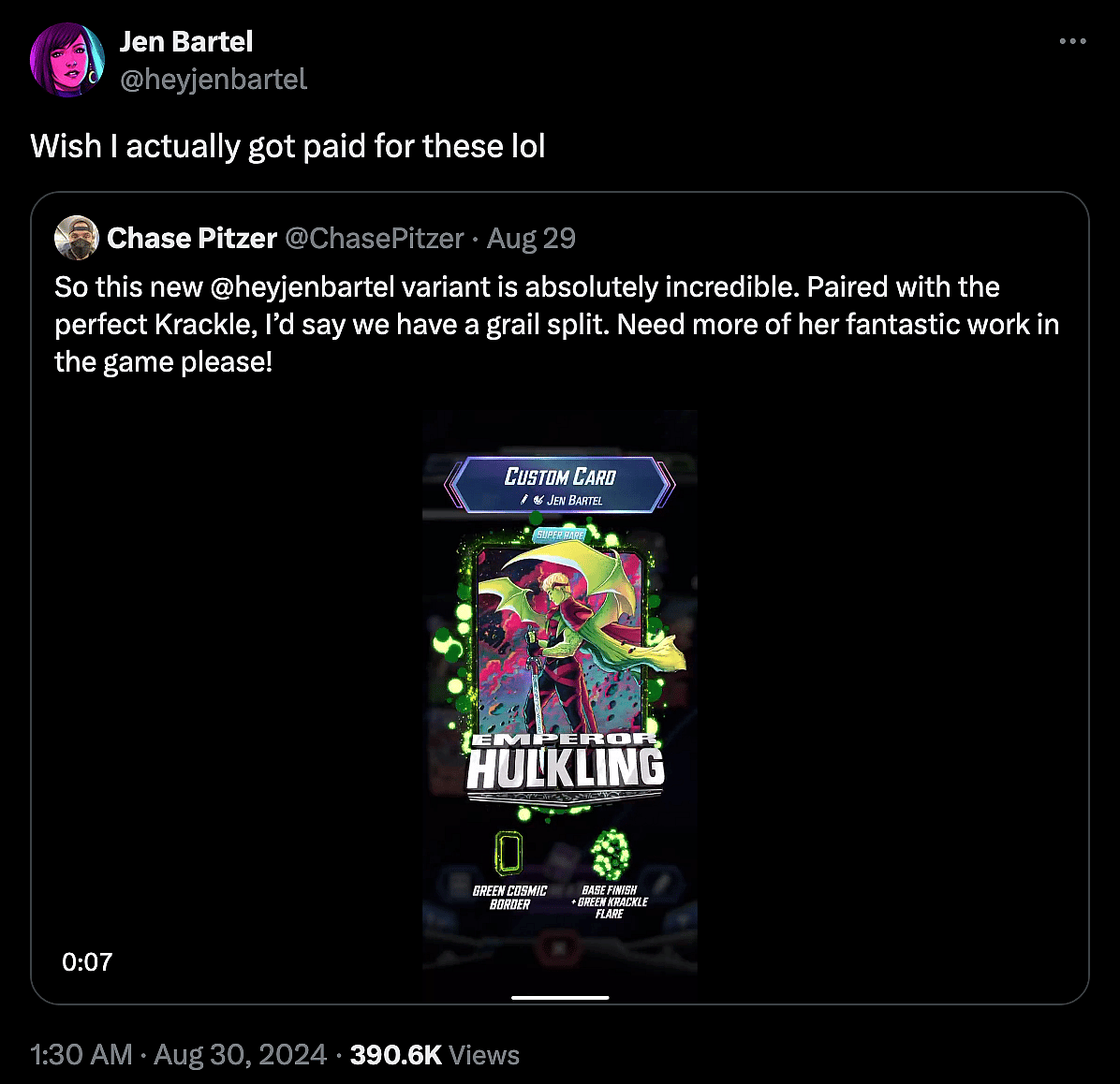
Pressed in turn by another fan, “So since it’s Marvel art, they just get to let them use it without you getting anything????”, Bartel further affirmed, “Yes. Feels bad man.”
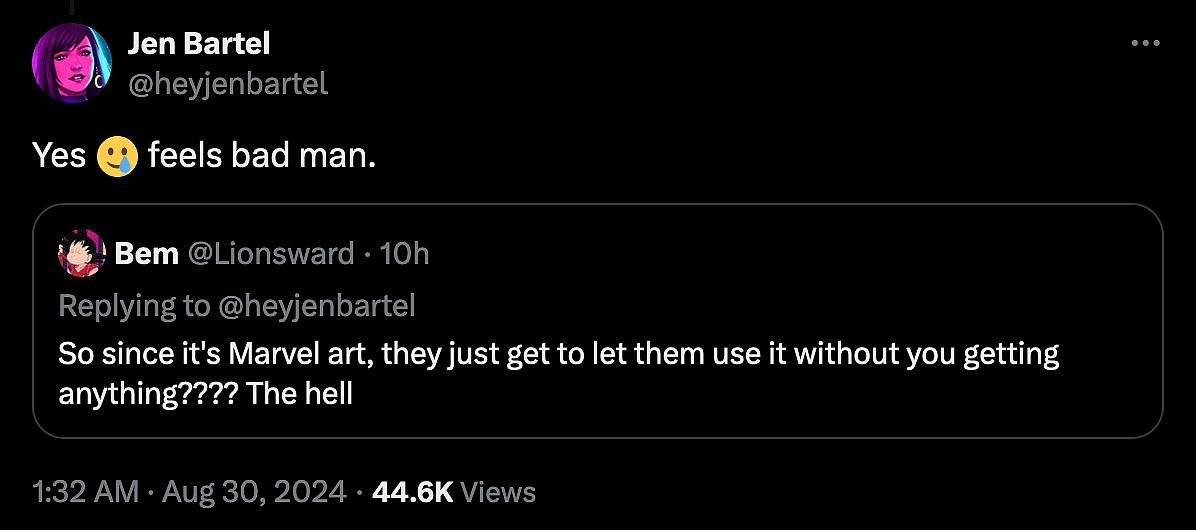
“It’s actually perfectly legal bc we *have* to sign over all rights on any licensed art we make for mega corps who own these characters, but it’s definitely not *ethical* to shaft artists like this,” she then explained to another fan shocked by this revelation. “Some companies (like Mondo, rip) paid us for usage even if they didn’t *have* to.”
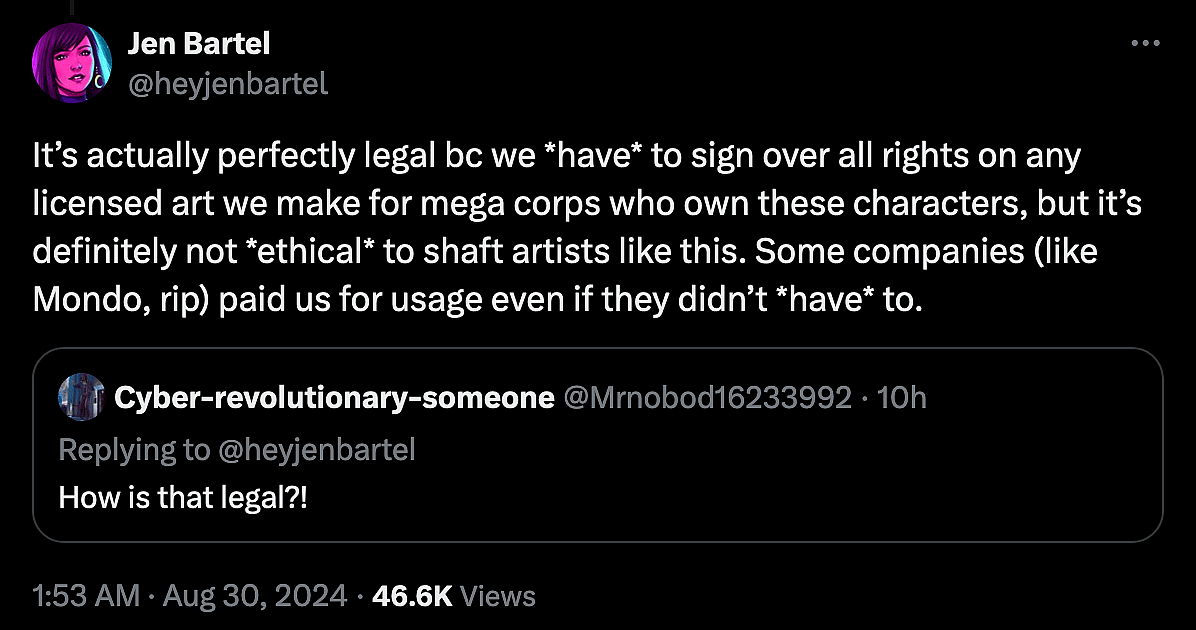
“They don’t legally have to [pay us] bc we the artists don’t own the rights to any official work we’ve done for these companies, ” she added, “but it’d go a long way to extend us some good will considering they promote these ‘rare variants’ explicitly using our names and creator recognizability. Sucks”.
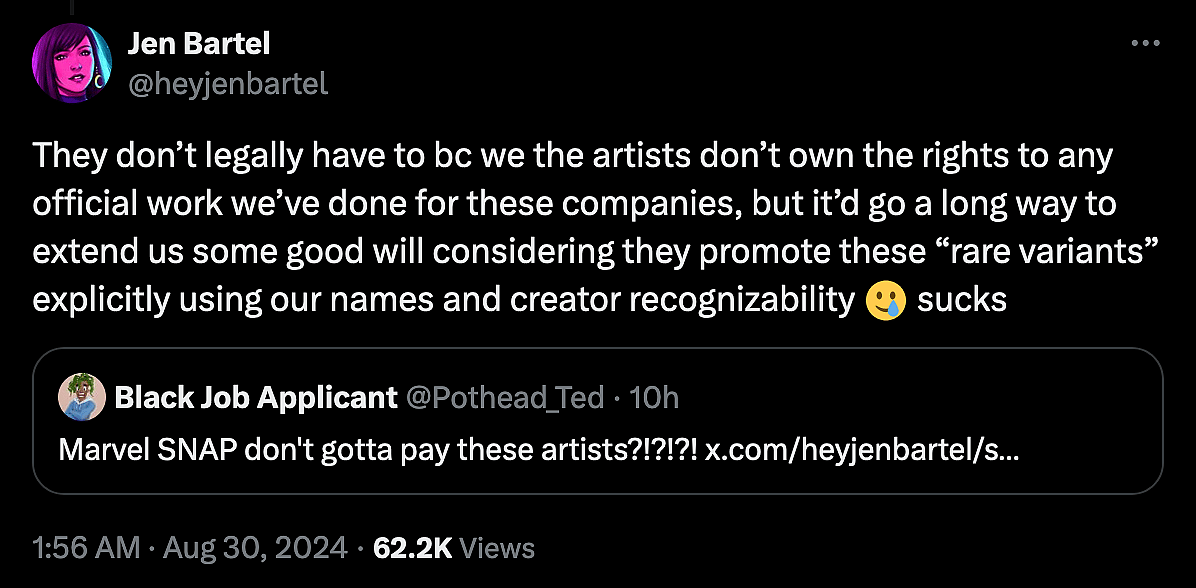
“Imagine if the artists who actually made the art they make millions of dollars off of even got to see a fraction of a percentage of that,” she proposed to another upset fan. “A cover I might have been paid $800 for will go on to make them 100x that amount and they will never send me an additional dime.”
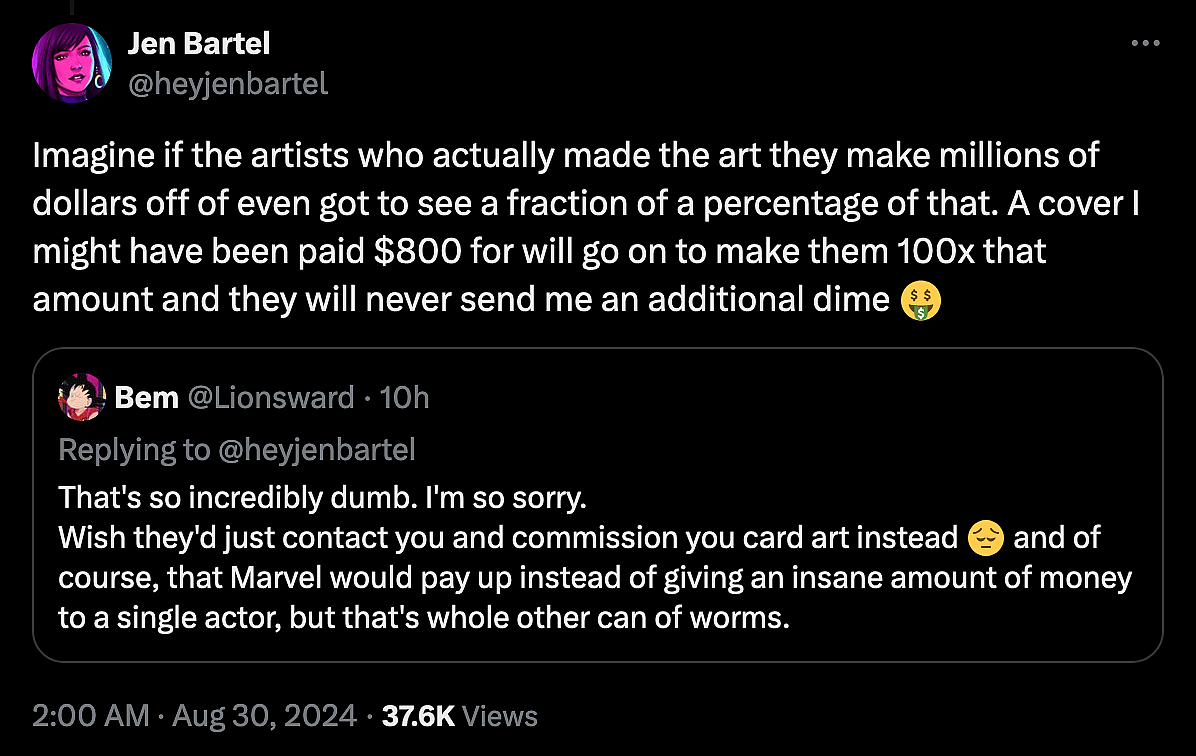
Further pressed on the topic, Bartel then noted that “No one wants to speak up about this bc artists are afraid of being blacklisted but tbh these types of policies are the main reason why I stopped taking as much licensed work from these companies—just felt too bad to keep getting exploited over and over and over again.”
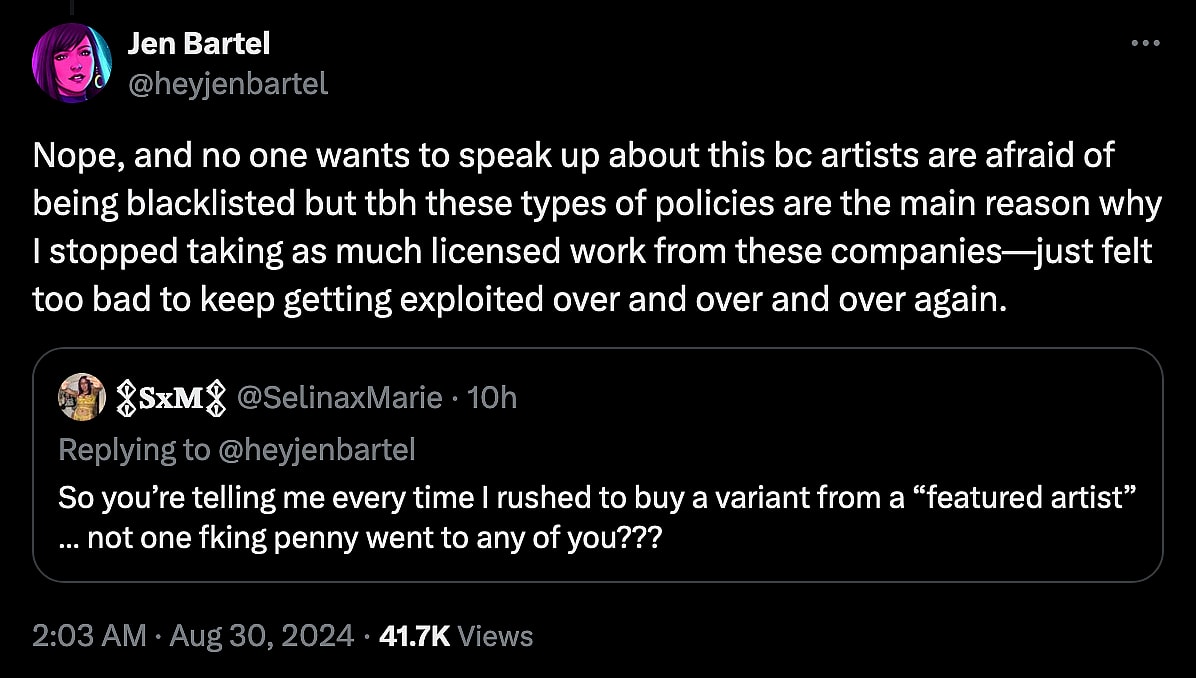
Asked by a fan whether or not she and her fellow artists had ever attempted to unionize in order to avoid such exploitation of their work, the Marvel Comics illustrator revealed, “Trust me there have been attempts but these corporations keep us all so atomized and even really established artists are afraid of losing income sources so it’s near-impossible to get people to coordinate. Not to mention many artists are international hires (even more underpaid).”
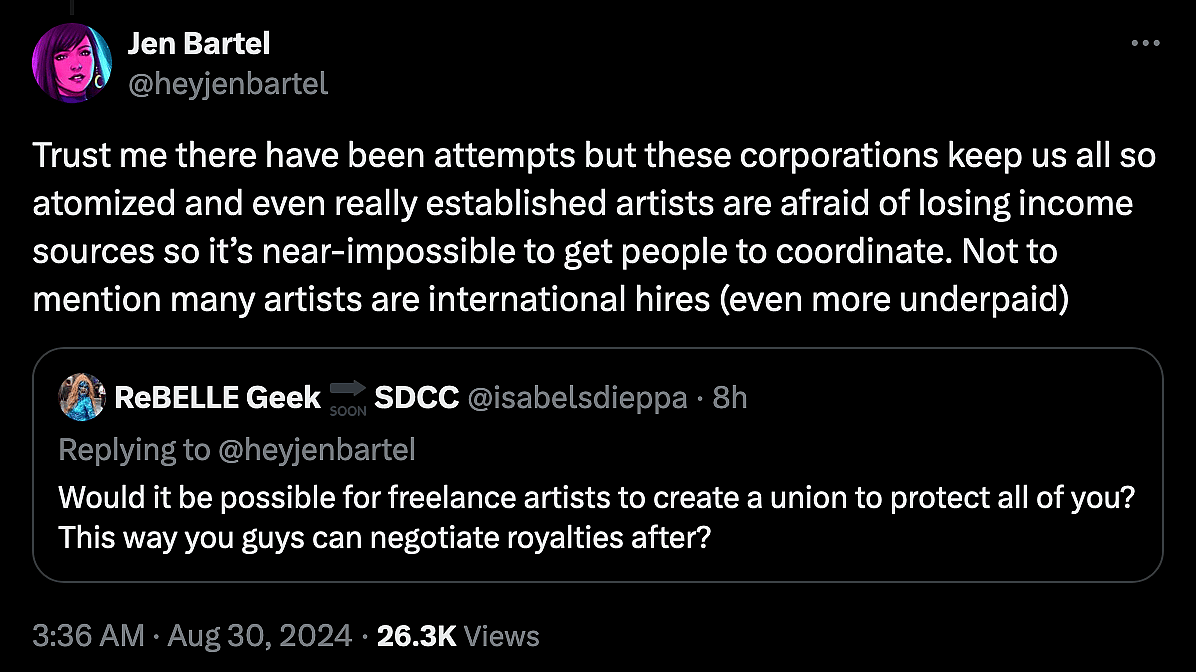
Drawing her thoughts on the topic to a close, Bartel ultimately assured fans, particularly those who had given Marvel money to use the aforementioned variants in-game, that her ire was not with them for enjoying the game, but with the company and their greed.
“I don’t blame end consumers for buying stuff they like and I’m glad my art provides a source of joy/entertainment/etc,” she ultimately assured players. “It’s the companies and contract models that are unethical and exploitative, not the fans.”
